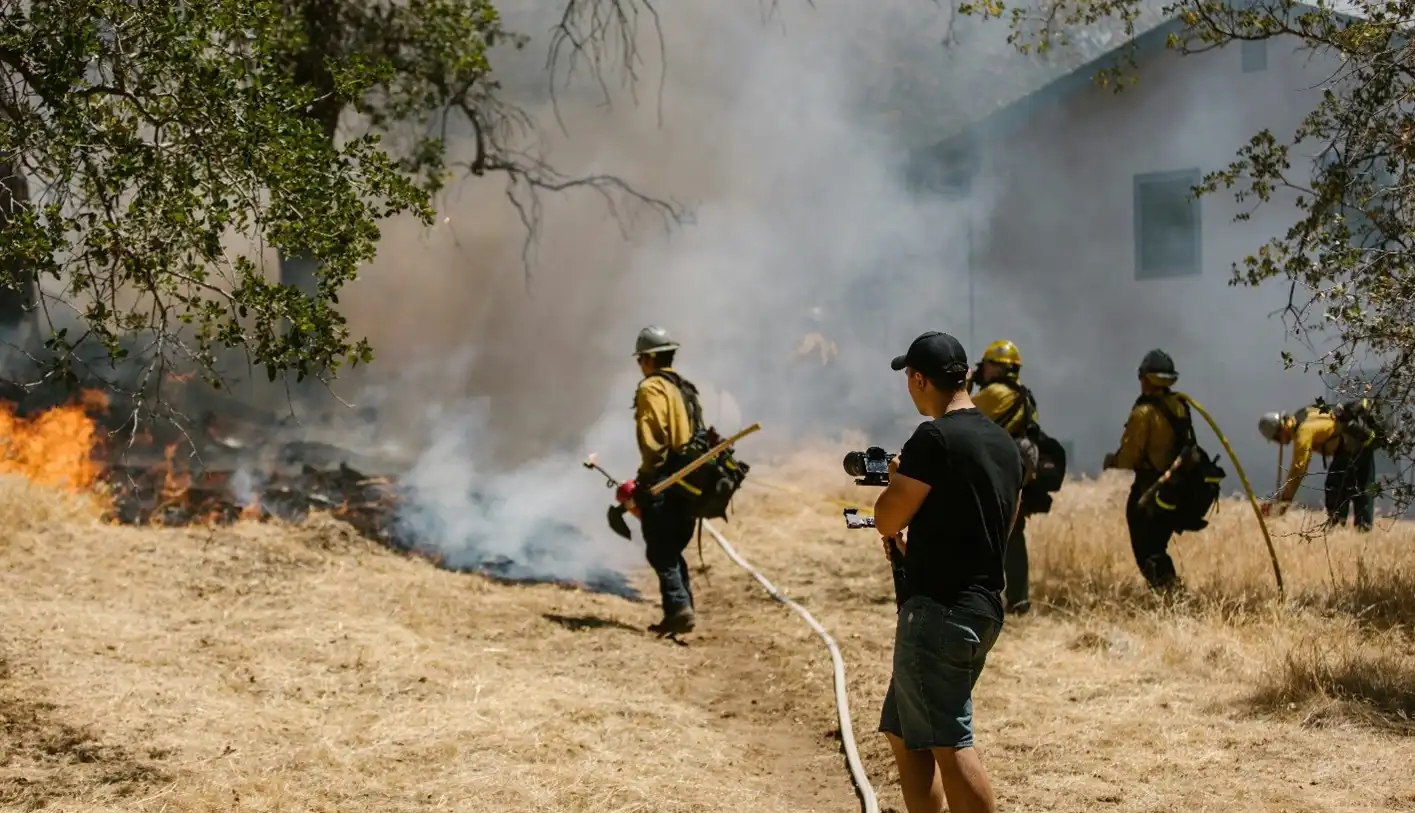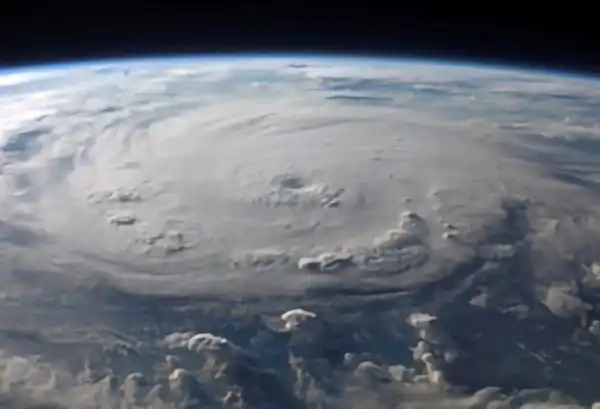
We all live somewhere on Earth. Today, that means we all deal with some measure of climate-related risk.
The “new normal” involves highly abnormal weather patterns, stronger storms, hotter heat. Florida, California, and Texas are frequently in the news for this reason. But even “climate havens” now deal with tornadoes and major floods. All this is pushing up the price of homeowners’ insurance — and a deed holder’s monthly costs.
What do you need to know to reduce your risks? Take a look.
Seller Disclosures Are High-Stakes Documents
All sellers and their agents must meet their state and local disclosure standards. Buyers, use special caution in “caveat emptor states” where sellers, by default, don’t have to disclose.
Most home sellers should tell buyers about significant defects, and agents can help a buyer understand what home sellers are telling them.
Yes, some sellers do hide defects, so take this aspect of due diligence seriously. You can do some scouting on your own, too. Sites like Portfolio Protect let you type in various street addresses and compare risks.
Pick up all the knowledge you can at your home inspection, too. Professionals know the local building codes. (There are now online databases that store state and city building code information, fire codes etc. for businesses and individuals to use.)
In most places, prior floods must be disclosed. But not all.
Important note for Florida deed holders: Since October 2024, Florida home sellers must disclose past flood insurance claims.
Ask the inspector about the source of the home’s water and how it will hold up to an extended drought. Look into water quality and sufficiency in a whole-neighborhood context. Consider nearby properties, too. Are the surrounding homes maintained in ways that take climate resilience seriously? More on that in our section on fire, below.
What’s the Deal With Homeowners’ Insurance Now?
Extreme weather events push up insurance claims. Insurance companies then charge everybody more.
Across the board, deed holders now allocate more than 9% of their total monthly housing payments to their homeowners’ insurance. This is unprecedented.
If you have a mortgage, your lender requires the collateral (your home) to have insurance coverage. Rising insurance costs are clearly a factor working against hopeful buyers. And owners, too. Some senior deed holders on fixed incomes are forced to decide between paying for insurance or groceries.
And prices are poised to keep going up, according to recent reporting. We can’t change that, but we can keep a few tips in mind:
- Consider getting a policy from an independent broker. These brokers shop around for their clients. Independent brokers can also recommend changes from company to company to save their clients some money.
- Buyers, get quotes from insurers before deciding on a home if you can. The cost of insuring your potential new home can be a bargaining point.
- Learn what you can about the history of claims — on the home, and in the general area. From The New York Times, here’s an interactive map showing where insurers have not renewed policies in the past few years.
Looking at condos and wondering about climate impacts? Check properties’ social media posts. Read the minutes from the HOA’s board meetings. And, of course, read up on how a deed to a condo actually works.
What’s Not Covered?

A typical policy covers damage from wind, hail, and electrical storms. It likely covers fire, including wildfires.
Earthquakes and floods have to be covered separately. Wind and hail damage in hurricane regions or coastal areas may also need a rider or a separate policy.
What if the home is ruined completely? These days, the full costs might not be covered. Increasingly, the deed holder is shouldering the risks of damage and loss. This becomes apparent when storms damage a roof. Insurers have become aware of the weakness of asphalt, a popular roofing material. So they have limited the amount of payouts for roof damage.
And yes, the lender will still want the mortgage repaid — even if the home is ruined.
Heat and Fire: Both Are Rising Issues
Were you born in the 1960s? Then the number of yearly heat waves have tripled in your lifetime. Periods of oppressive heat have also grown substantially longer.
And maybe you’ve noticed something while out shopping for a home. Pricier neighborhoods tend to be cooler, with more shrubs and trees.
The more concrete in an area, the hotter it will be in summertime. It will also have heavier stormwater runoff, leading potentially to recurrent floods.
As for health impacts, heat waves are actually more potent killers than floods and heavy storms. Heat’s impact has a multiplying effect on the value of a given deed.
Excessive heat also makes fires more likely to start and spread. In Colorado, many deed holders saw their homes go up in flames in 2020 and 2021. Insurance generally failed to cover most of the damages.
If you’re looking to buy in wildfire country, be sure to learn about home hardening — steps that will need to be taken to protect your (and your neighbors’) property.
Subsidence and the City
When you think you’ve heard everything about climate and real estate, something else shows up on the radar. A recent New York Times investigation of the 28 most populated places in the United States shows that 25 are sinking.
The most severe effects have been noticed in and near Houston and Fort Worth, but this is a widespread phenomenon.
Turns out too many people are pumping too much water from the ground. The extraction of oil and gas, (and related water use) can create additional sinking.
Sinking — officially known as subsidence — can make the flooding associated with sea level rise even more pronounced.
The Times spoke with a professor of geophysics who explained how roads and buildings crack over time when situated on sinking land. Foundation repair is pricey. As for the land, it’s not really possible to reverse the effects of subsidence.
Just one more factor to put on the buyer’s due diligence list.
Supporting References
Mira Rojanasakul for The New York Times via NYTimes.com: Across America, Big Cities Are Sinking. Here’s Why (May 8, 2025; citing Ohenhen, Shirzaei et al., Nature Cities, 2025).
Ron Lieber and Tara Siegel Bernard for The New York Times via NYTimes.com: How to Shop for a Home That Won’t Be Upended by Climate Change (Mar. 18, 2025; produced by Meghan Ryan Morris, Michael Beswetherick, and Zachary Bickel for the New York Times Company, citing research reports from S&P Global Market Intelligence, Berkshire Hathaway, the Consumer Federation of America, the U.S. Global Change Research Program, Berkshire Hathaway Home Services, and others).
Caitlin Cahalan for TheStreet.com: Housing Expert Predicts Major Insurance Risk for Homeowners Soon (Mar. 6, 2025; interviewing Tia Boatman-Patterson, who leads the California Community Reinvestment Corporation). See also Caitlin Cahalan for TheStreet.com: Warren Buffett’s Berkshire Hathaway Reveals Hidden Costs for Home Buyers (Feb. 21, 2025).
Deeds.com: Epic Heat? New Study Links Racial Deed Restrictions to Temperature Risk (May 3, 2024).
And as linked.
More on topics: Material defects in seller disclosures, Climate effects on property values, Builder markets a fire-resistant development
Photo credits: RDNE Stock Project and Pixabay, via Pexels/Canva.
